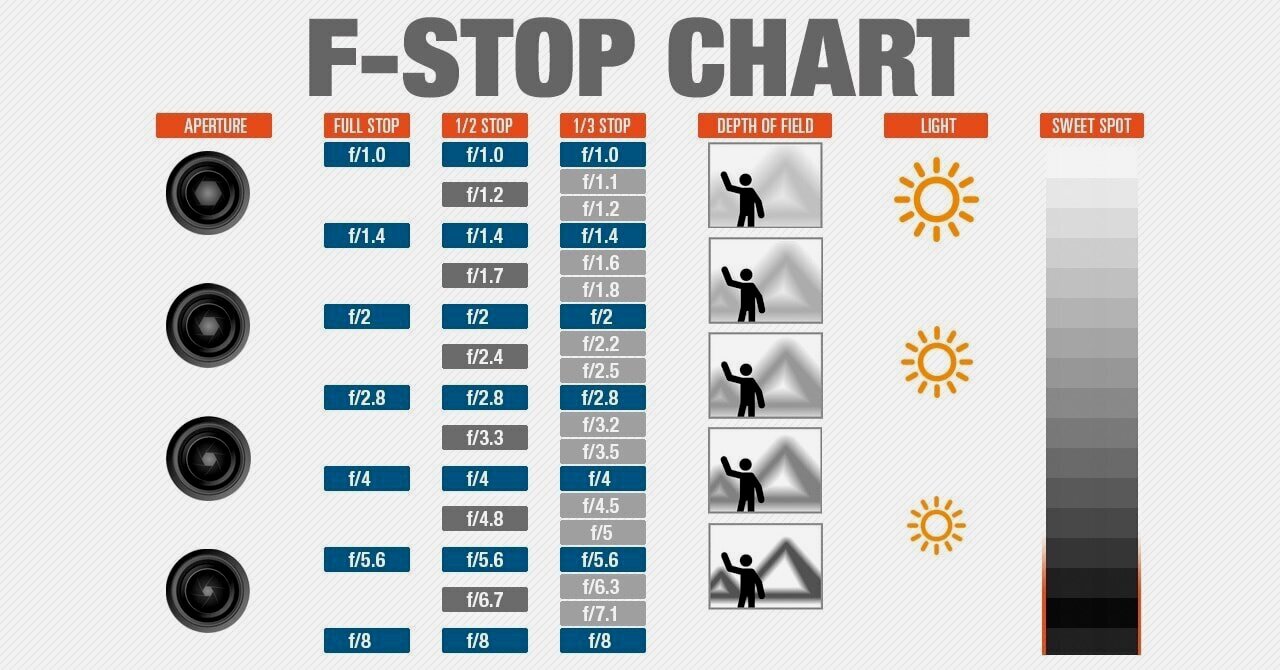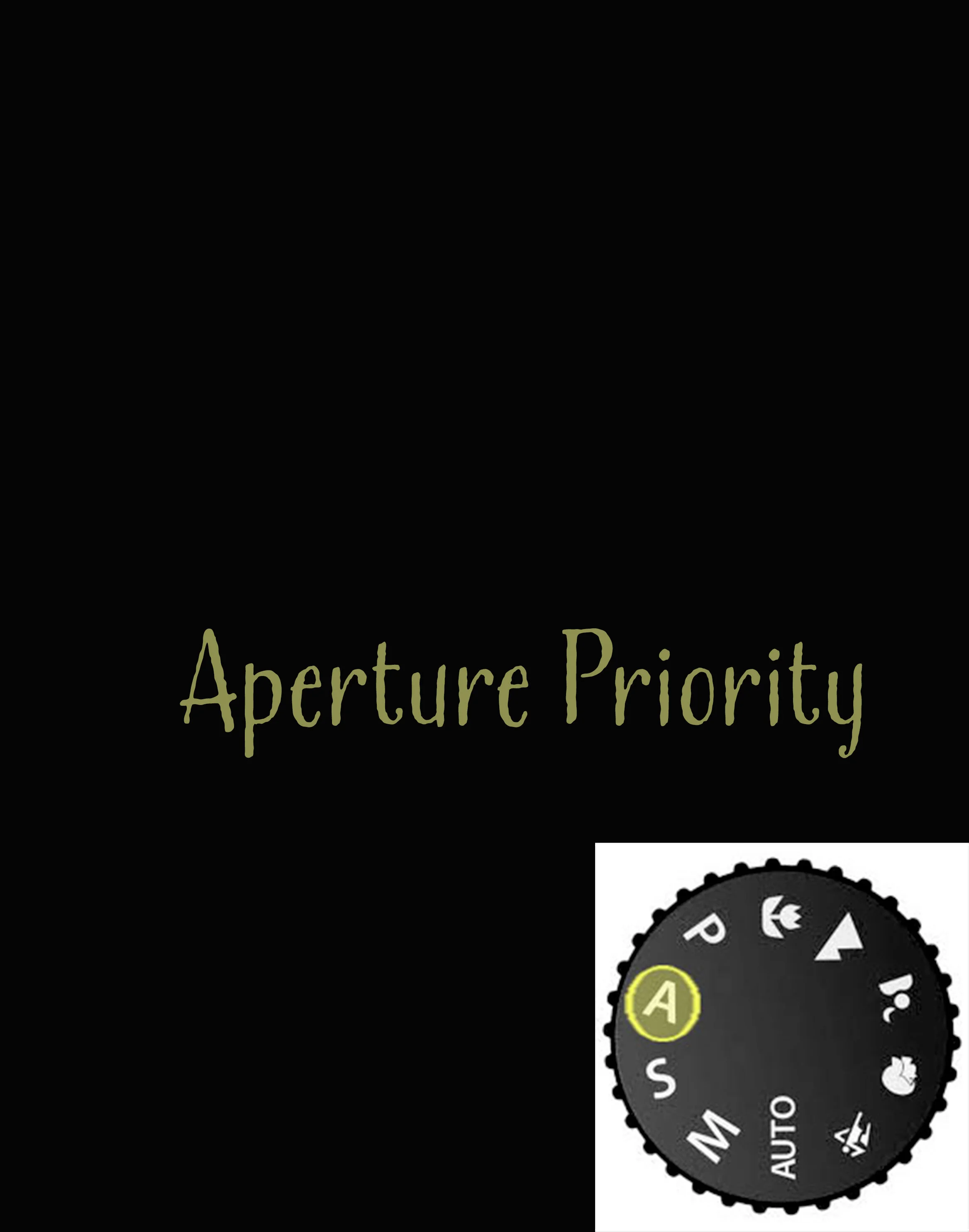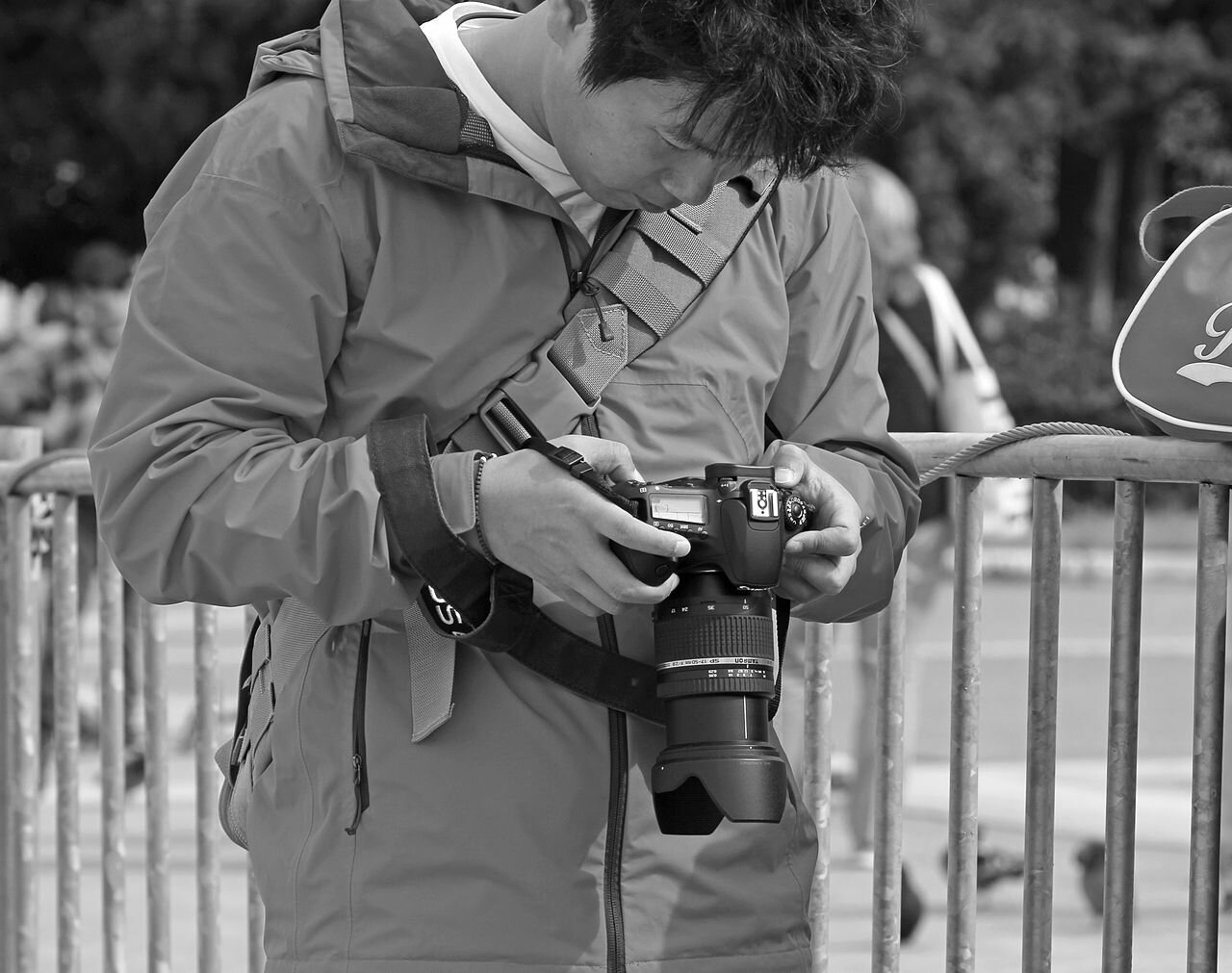What’s your f-Stop?
Your camera, like your eye is highly sensitive to light. When you enter a dark room you pupil will dilate (become larger) to allow more light to reach your cornea.
Although many modern cameras can virtually see in the dark, light is always necessary. The Aperture settings on your camera adjusts the opening of the lens. The smaller the f-Stop the more sensitive the lens will be to light.
In addition, your f-Stop determines the Depth of Field (“DOF”), which can be used to separate a subject from the foreground and background, or ensure that more foreground and background are in-focus. An example of DOF, with labels, is provide for context.



